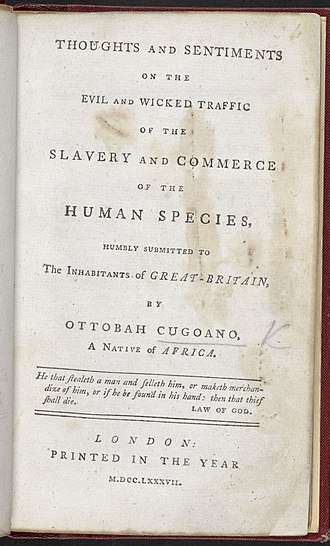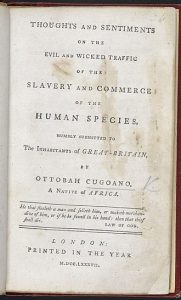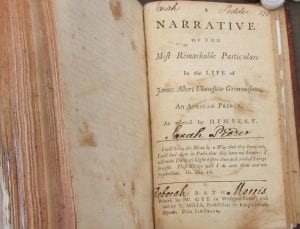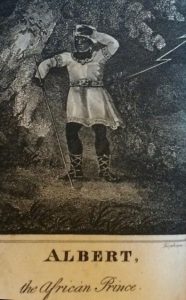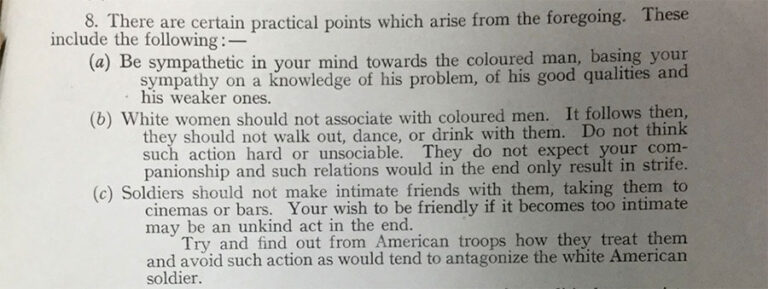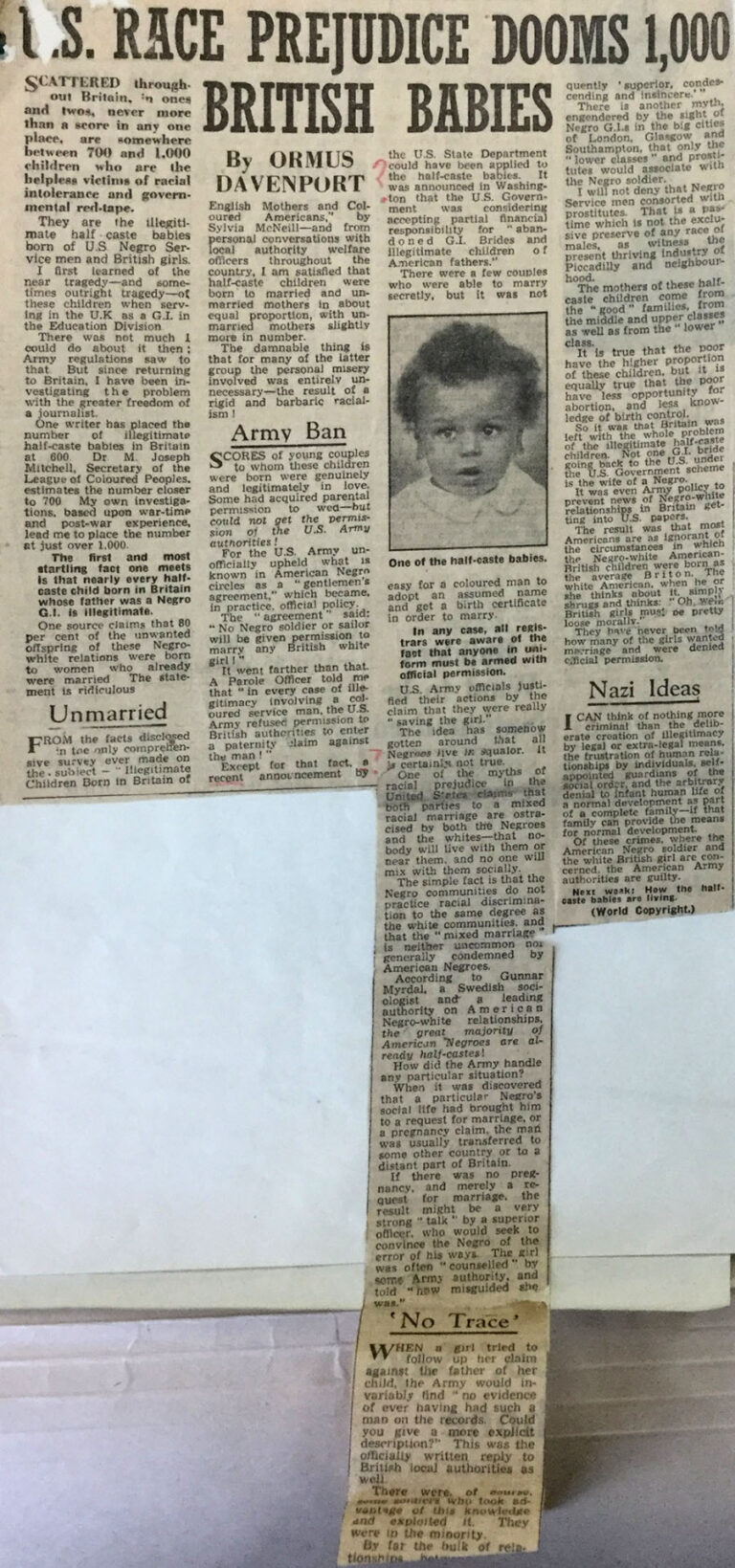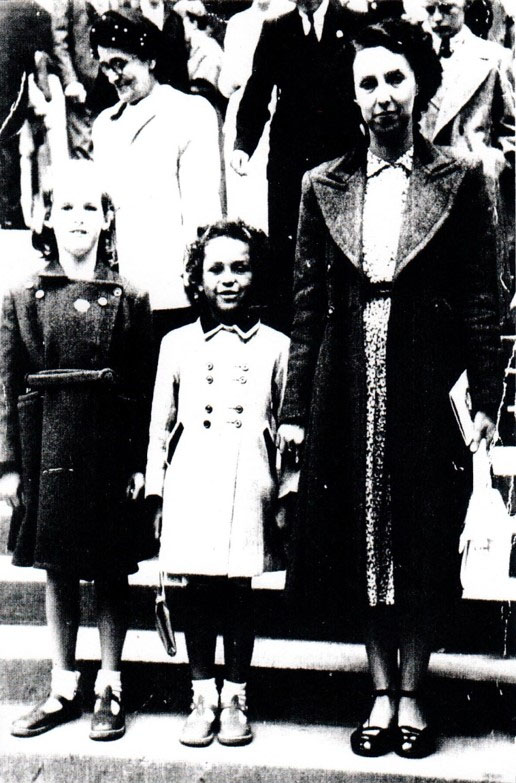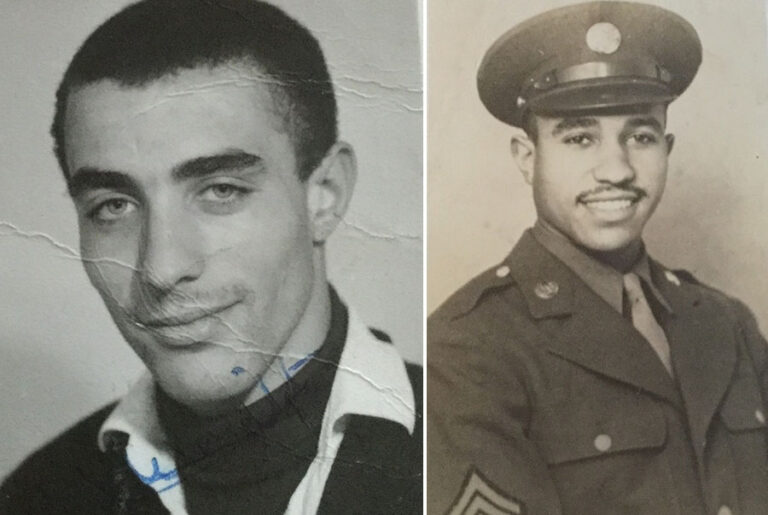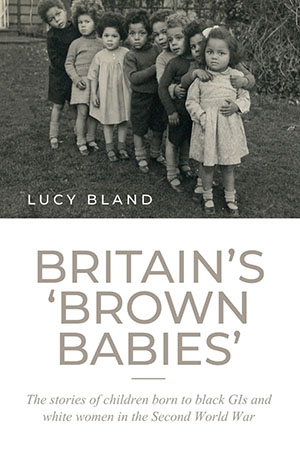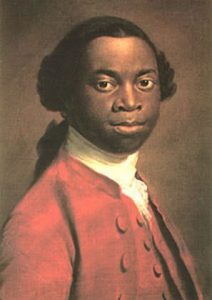
Ottobah Cugoano, born in the year 1757 in what is now Ghana, was captured at the age of 13 and sold on the Atlantic Slave Trade. Cugoano describes his capture in great detail in his autobiography, Thoughts and Sentiments on the Evil of Slavery. Cugoano and others were tricked into thinking that they had done something wrong and needed to answer to the lord of the area. Each day Cugoano and his companions were told that they would speak to the lord soon, as he was very busy, but remained in captivity in the meantime. Eventually, Cugoano realized that something was wrong, and suspected that he wouldn’t be going home anytime soon. In his book, Cugoano writes of feeling betrayed by his fellow countrymen, who were the ones who captured him and led to his eventual enslavement.
Cugoano also wrote of the horrors he witnessed while aboard the slave ship. Women were raped, men were brutally punished, and their living conditions were abhorrent. His experience upon the slave ship was so bad that Cugoano recalls feeling relieved when he was purchased by an English man, as being this man’s slave was a relief compared to being aboard the ship. At one point, the men had collectively agreed that they would rather have been dead and made a plan (that was never executed) to blow up the ship and die in the flames.
In 1787, when he was around the age of 30, Cugoano published his book attacking the arguments of those who were pro-slavery. Equiano edited this book for Cugoano, but further analysis (mostly of the content in his private letters) suggests that Equiano may have rewritten large portions of the book and possibly added in sections of his own. Cugoano argued that slavery was a moral wrong, and that all Britons were guilty for being complicit in allowing the institution to continue on. In addition to arguing against the immorality of slavery, Cugoano suggested that ending the slave trade/slavery would actually be economically beneficial to Britain. For instance, he argued that black workers would be more productive, and therefore make more profits for Britain, if they were free people.
Compared with other black activists and writers of the time, such as Ignatius Sancho and Ukawsaw Gronniosaw, Cugoano’s beliefs were much more assertive and radical. Edwards and Dabydeen describe his writing style to be aggressive, bitter, and urgent. For example, he was the first African to publicly suggest the total abolition of both the slave trade and slavery. While not much is known about Cugoano following the publishing of his book, it is clear that his activism and writing played a key role in spreading the message of anti-slavery to 18th century Britain.
